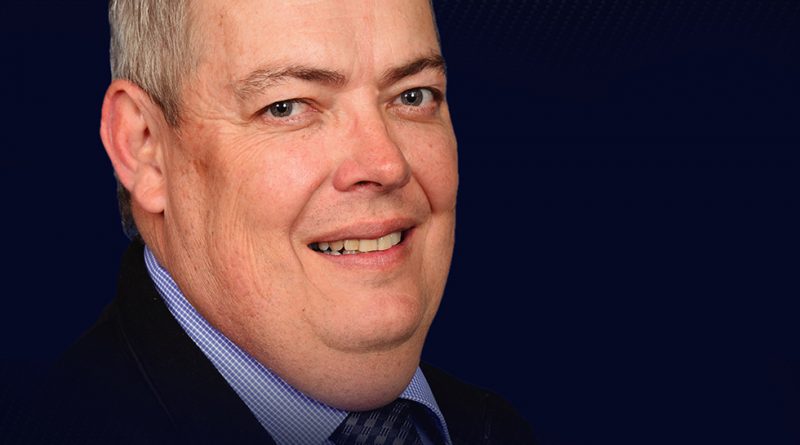Peet Du Plessis
Chief Editor:
A very good afternoon Mr. Du Plessis and thank you for taking the time to avail yourself for this interview.
You have had an illustrious career with an impressive span of 38 years in local government. Your valued contribution to the public sector is undeniable and indeed inspiring. I am certain our readers would love some insight into what has helped you walk this journey. Please share with us:
- Who has played a significant part in you achieving such success in your career?
- The best highlights of your career
- Some of the challenges you have had to overcome
PD: My career started on the 1st December 1980 in the office of the Provincial Auditor of the old Transvaal Province, I was place under the supervision of Robert Hooper who was also the Audit manager for our region. He played a significant role in my outlook on life and what it meant to be ethical and honest in your day to day life. After 8 years in the office I commenced my full career in Local Government in the Eastern Cape. It is fact of life that people have the ability to influence and change your perceptions with the onus being on you to decide which portions of their influence you are going to make your own and live by it.
One of my best highlights by far would certainly be my drive in 1989 to transform my Municipality from a manual financial system into a computerised financial system. This was a rigorous 1-year project with a steep learning curve for all the employees of that Municipality. I can proudly say that we were the first Municipality to integrate Income and Expenditure on the then Abakus Financial System from ICL. Later a bank reconciliation module was added of which I was the co-designer. This was indeed an exciting time to be part of introducing a more efficient way of operating.
My biggest challenge was when I was appointed Treasurer of Tzaneen Municipality in 1996 and our billing system was outdated and new billing system could not render accounts for two months. This caused severe financial stress to the Municipality and required the leadership to steer the Municipality through this trouble waters to attain financial sustainability.
Chief Editor:
You have been at the head of many positions and organisations clearly demonstrating the calibre of your leadership ability. As a leader, how would you best describe your style of leadership and what motivates you to progressively impact and influence others?
PD: A lot can be said about leaders and leadership, but I see myself as a person who leads from behind and who will always start new initiatives through innovative thinking. I encourage my colleagues to read more and upskill themselves to understand the rules in our game. Knowing the rules helps you to play the game better and in our field this will ensure full compliance. I have an open-door policy whereby any person can come through into my office and address any query they might have.
I am also of the opinion that if you do not consider yourself as a person who wants to render a service to the public then you should not work in the public sector. Further I am of a firm belief that money is not a motivator but rather passion for what you are doing. Any public servant who works in a municipality purely because it is a job has missed the opportunity live out his or her passion. The last point I want to make in this regard is that we should not be driven by our status in the position or title but in the humbleness of having a job where we could touch lives by changing the living conditions of ordinarily people who depend on us to do our jobs efficiently.
Chief Editor:
Like steering a ship in troubled waters, you as President of CIGFARO has had to spearhead the organisation during these most challenging times of the national pandemic. How has this tested you as a leader and at the same time unlocked the capacity for innovative thinking to ensure that the organisation adapts to the new normal?
PD: The institute pre-COVID-19 was financially and organisationally strong and we have seen unexpected numbers of members and non-members attending our conferences, workshops and training programs. With COVID-19 and especially the full lock-down of the economy has had a direct impact on the financial sustainability of the Institute. The biggest emotional impact for me was to inform staff with long service some more than 20 years that we unfortunately have to lay them off as result of the negative financial impact. This was done to ensure the ship stays afloat. The next step was to look into revenue raising strategies for the Institute which brought us to several projects that we have started running of which the “LG Revenue Management Improvement Programme” is the most successful at the moment.
We have also identified an ambiguous project which entails the updating of the CIGFARO Municipal Handbook with a view of using the handbook as the sole practical document assisting Municipalities in their day to day operations.
The last key innovation was to introduce virtual conferencing and webinars to create sustainable revenue for the Institute, this is still in its infant shoes but we foresee that this will develop with great success in years to come.
Chief Editor:
Drawing on your financial knowledge and experience, how would you benchmark SA finances vs USA/UK?
PD: As SA we have lost opportunities when it came to our economy and how we implement our national policies including our local economies. I am a firm believer that our main drive in SA should be job creation and value add to our raw materials which we currently export to China in the main, where the value add happens outside our borders and we import the goods. Current LED policies does not promote private sector investment to the scale that we need and municipalities are struggling to collect revenue as a result.
We have seen certain major projects in some municipalities, but we don’t see a scale of development that could really drive the unemployment rate down. When it comes to infrastructure assets owned by municipalities it is a phenomenon across the US and the UK where Municipalities are challenged by aging assets and funding shortages to maintain and or replace them. This is also a problem for municipalities in South Africa. What we need is to mobilise communities to actively take part with councillors in programs supporting municipalities to replace and maintain critical assets for basic services. Here I am referring to water, sewer and electricity assist.
Lastly I am of the opinion that all municipalities in my experience and what I have learned in conferences is that we all have the same problems and shortage of funds to maintain and replace assets.
Chief Editor:
As a Revenue expert, what is your view on large debts and the need to think differently when dealing with debt?
PD: We can’t talk revenue if we don’t talk expenditure in the same breath. You can’t separate the two. You can spend money if you don’t have the cash. Similarly, you will not be able to collect money if it is unaffordable. Debt is a consequence of several factors, staff in municipalities who is reluctant to collect the debt, interference by councillors and staff who abide to such interference, tariff increases YoY is far more than what the local economic growth is, this caused a shrinking in the local economy and put pressure on people to migrate somewhere else where it is more affordable and where job opportunities are.
What we require is a move back to basics and salaries of municipal officials needs to be reviewed and levels of salaries should be linked to certain criteria which could be amongst others number of employed households, etc. A cut in cost will have an impact on the ability to pay. The second point I want to drive is that there is not enough pressure on financial institutions to reduce credit. I do understand that we need credit in the market to grow the economy but that is one of the multiple instruments that has an impact on economic growth. I firmly belief that a customer will pay his municipal bill if we could have a way to prevent credit to a customer in debt of the Municipality.
Chief Editor:
Municipalities are constantly berated by communities for the poor quality of service delivery received citing incompetent staff as the main problem. In light of this there has been a greater outcry to professionalise the public sector. What are your views on the professionalization of Local Government as a solution to improve the quality of service delivery within our municipalities?
PD: I am a strong supporter of ensuring that the whole public sector is professionalised, this was one of my goals set as President to influence decision makers to start professionalising the public sector. Municipalities previously before the promulgation of the MFMA had Treasurers to have a professional registration with the Municipal Accountants Board. The legislation governing this process was unfortunately repealed, and it created a vacuum and we have seen appointments of certain key staff who do not qualify to hold such a position.
The public sector is riddled with fraud and corruption and the only way to address this is through professional bodies who could keep an eye over their members through a disciplinary process whereby such a member will lose his/her registration and will be barred from practising his/her trade. The Minister in the Public Administration took a step late last year with a position paper in this regard and there is now some traction towards the professionalisation of the public sector.
Chief Editor:
As one who has served excellently having set a standard of good governance over the years, as you prepare to pass on the baton, what would be your advice to the current and upcoming generation of public sector leaders and what would you like to be considered as the legacy you leave behind?
PD: The legacy I would want to be left behind is to show municipal officials that no matter who you are, you can make a difference in the lives of ordinarily people, and let the sun shine over everybody. With this also goes the love of GOD. Set the example to your staff, put yourself in a position to know the work that you expect your subordinates should perform and don’t be afraid to do it yourself.
Lastly don’t live in the past as this will prevent you to see the future and you will not reach your full potential.
Chief Editor:
Thank you Sir for those most valued insights. We appreciate and commend you for the remarkable contribution you have made to the strengthening of the public sector. We trust that your legacy will influence a new calibre of exemplary leadership and authentic public servants. We thank you for your time and wish you everything of the best in your future endeavours.



